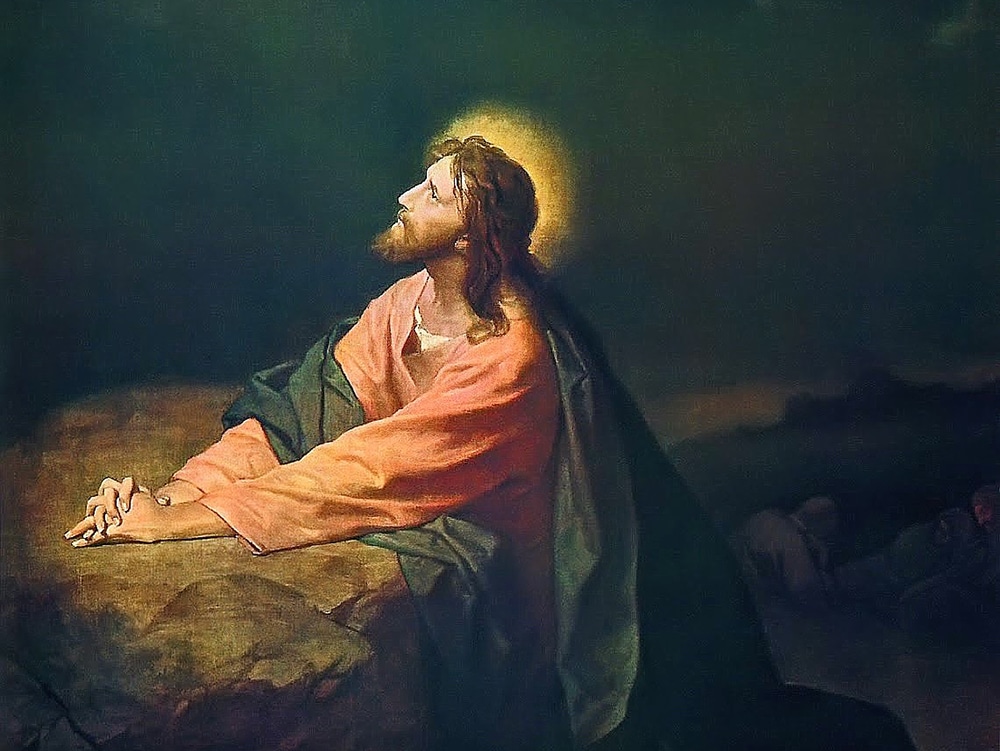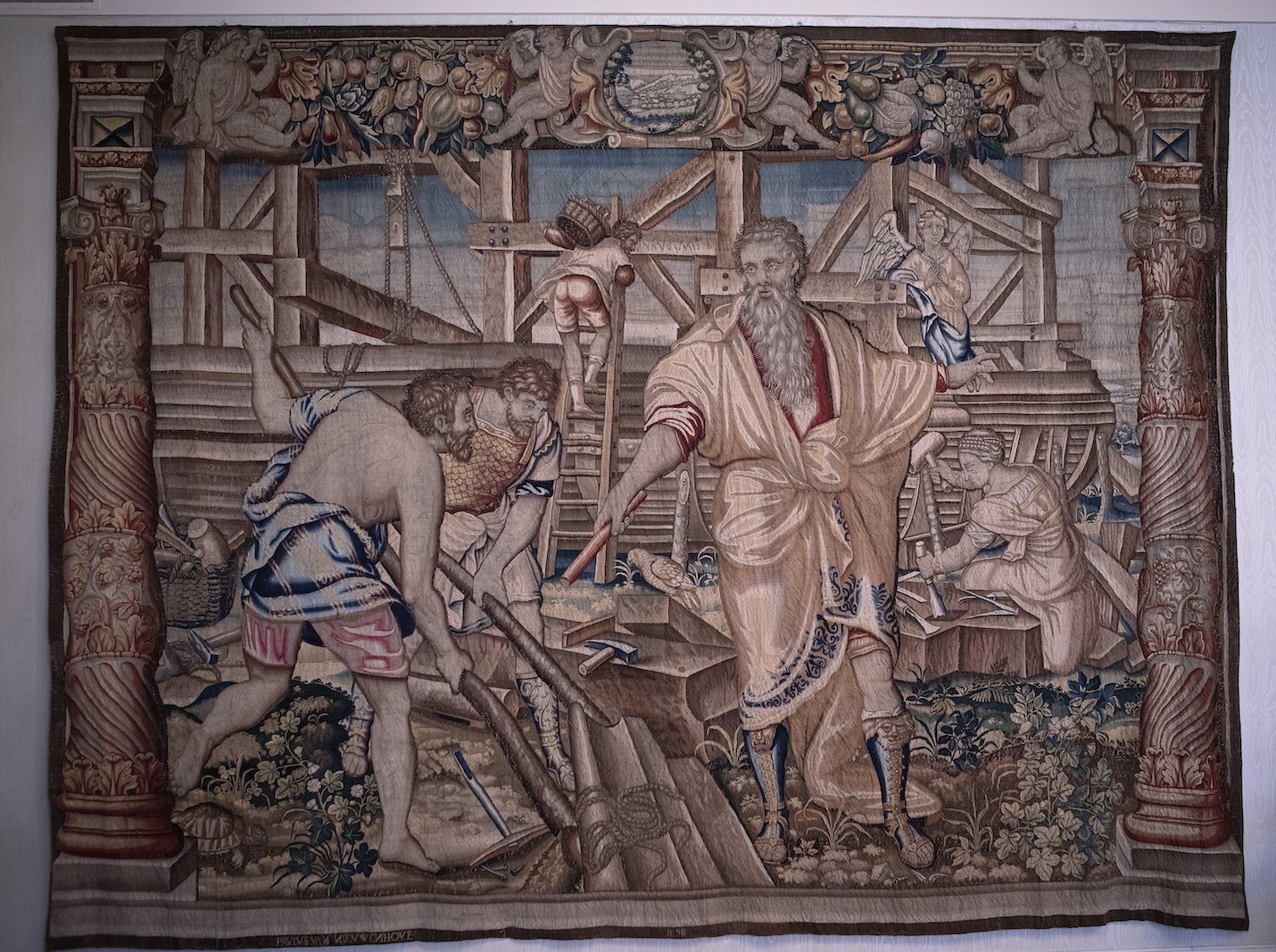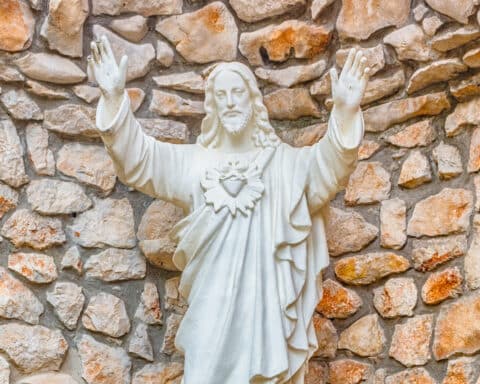We are meant to read the passage from Genesis figuratively and simply. At the end of the story about Noah, we learn that through the flood, using the ark, God saved chosen creatures, all life basically, and brought that life out again, as if new, upon dry, unflooded ground. Salvation through the flood, through water: that’s what we’re meant to see. As I said, figuratively we are to understand this, which instinctively we do. For we Christians can’t help but think of baptism when we think about Noah and the flood.
It’s interesting then to wonder that here at the beginning of Lent, we are subtly invited to think already of Easter, of the baptisms we’ll celebrate on that Sunday far away. We are invited to think about our baptisms, which we will renew then too. The season of Lent, you see, must be about the basics, about the renewal of such fundamental things: the sacraments, like baptism, that still give us life. That must be what we’re meant to think about: How to live better our baptism in Christ.
| February 18 – First Sunday of Lent |
|---|
|
Gn 9:8-15 Ps 25:4-5, 6-7, 8-9 1 Pt 3:18-22 Mk 1:12-15 |
But it’s a reflection that puts us at times in an uncomfortable and lonely place — like Noah, like Jesus. Noah was a man alone; Jesus was too. And it was certainly difficult — surrounded by jokers and mockers — feeling alone as we know they did. But the thing is we too may be called at times to stand alone like them, to feel just as alone.
This seems to be the meaning of the passage from 1 Peter, especially if one reads it in its larger context. “Do not return evil for evil, or insult for insult; but on the contrary, a blessing, because to this you were called, that you might inherit a blessing” (1 Pt 3:9). The Christian is meant to stand holy amid the evil of the world: even if that means standing alone, even if that means suffering. “But even if you should suffer because of righteousness, blessed are you. Do not be afraid or terrified with fear of them, but sanctify Christ as Lord in your hearts” (1 Pt 3:14-15). The exhortation here is that being a Christian means you will often find yourself alone, morally isolated. It means that you will probably suffer too. Maybe not the most appealing thing about Christianity, about these readings — that baptized Christians may very well find themselves in the same position as Noah and Jesus — but that’s the message. It wasn’t my idea, but there it is. Have a happy Lent!
An invitation to be with Christ
But if you think about it, it’s beautiful, because of where the second reading picks up: But Christ also suffered, the passage begins. You see, the invitation to be alone in an evil world isn’t really an invitation to be alone. It’s an invitation instead to be with Christ. Noah stood alone in the world; Jesus prayed alone in Gethsemane. When we are baptized in Christ, promises were made that we would be raised to be strong enough to stand alone in the middle of a wicked world. Here we see how the invitation to reflect upon our baptism has become an invitation to reflect upon our own moral wherewithal, upon what’s become of our baptismal promises. Are we strong enough to be Christians when it counts?

This must be for us perhaps a more urgent reflection than it has been in the past. Or, maybe that’s the invitation — to take all this more seriously this time around. That, at least, is how I hear those words of the Lord, that the kingdom is “at hand” (Mk 1:15). I hear it all as a rousing demand that I take my Catholic soul more seriously, that I take up the spiritual battle to prove my spiritual mettle — to be strong enough to stand alone, to die even, to rise with Christ. Again, happy Lent! Where are you on this? Could you stand alone with Christ? May we pray and struggle to be so strong.





